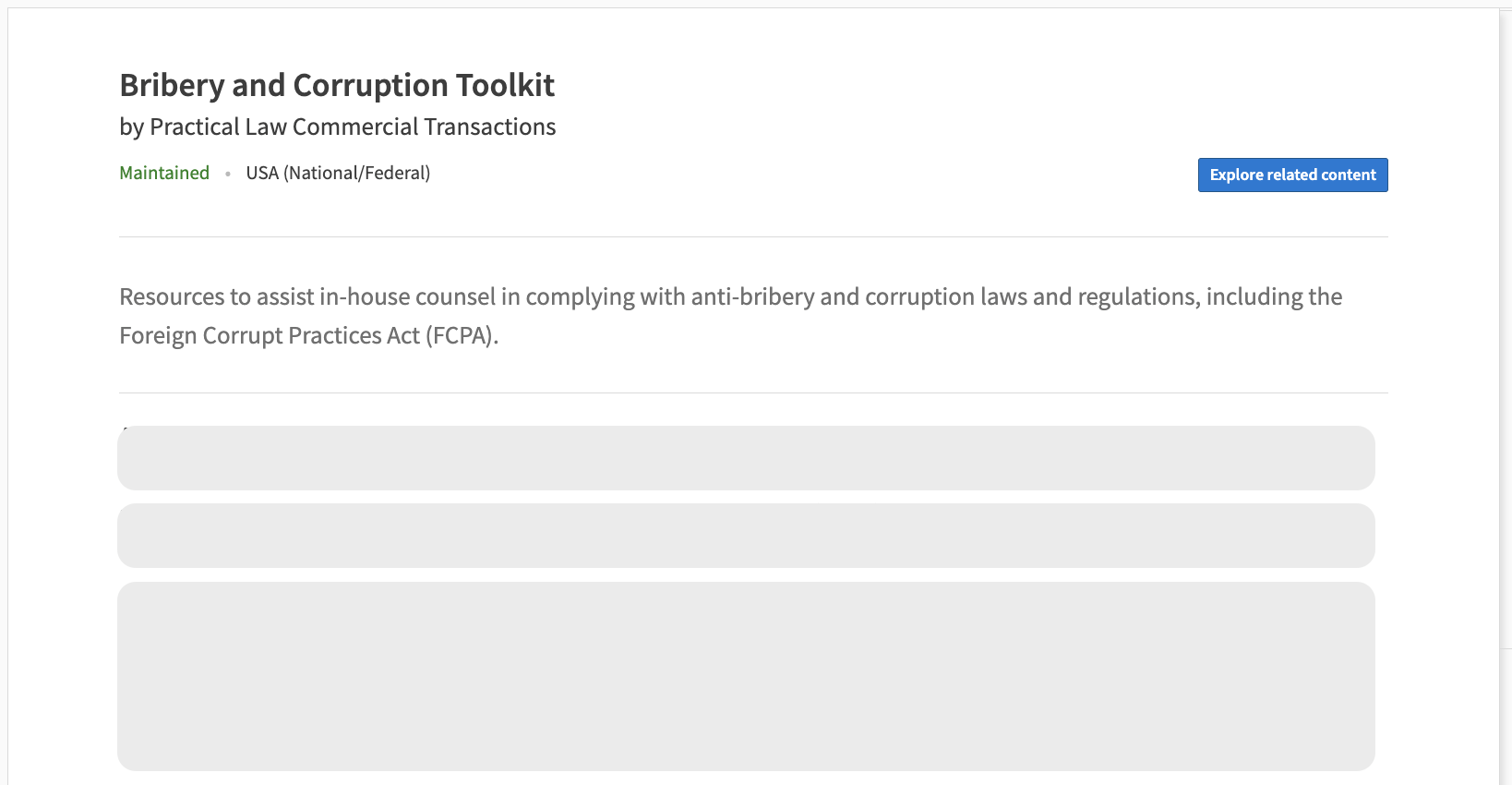The similarities and differences between bribery, quid pro quo, and extortion.
If you’ve been keeping up with current events in politics, local news or the latest social media feeds, you may have come across terms like bribery, quid pro quo (QPQ), and extortion.
Quid Pro Quo describes an agreement between two or more parties in which there is a reciprocal exchange of goods and services. Although some quid pro quos have illegal implications such as bribery and extortion, not all do.
A QPQ in the form of bribery occurs when someone with a public or official obligation offers, provides, requests, or receives anything of value to persuade someone to do something.
Extortion occurs when someone threatens to do or say something that will harm the person. The threat could include bodily harm, damage to property, damage to reputation, etc.
QPQ is essential to the concept of bribery and extortion, although not all exchanges of value amount to corrupt practices.
So whether you’re an attorney conducting litigation research for criminal law or you’re seeking criminal defense legal advice for yourself, we hope the following content provides a valuable starting point to inform your next steps in research.
Jump to ↓
Bribery
Bribery is a white-collar crime. Offering, asking for, giving, or receiving anything of value (such as money, presents, meals, valuable assets, etc.) to influence someone with a public or legal obligation is considered bribery.
The federal statute prohibiting bribery, 18 U.S. Code Section 201, contains three basic parts:
1) Offering or promising something of value to a public official
2) With the intent to induce that official to take or refrain from taking official action
3) With the intent to induce that official to commit or allow fraud or with the intent to induce that official to do or refrain from doing something contrary to their duty.
If the bribes are instigated or solicited by a public official, that official may also face criminal charges. Giving or receiving anything of value in order to compel false testimony before Congress or a hearing is likewise illegal.
Unlike other kinds of corruption, bribery has a far-reaching influence beyond the persons directly engaged. The maximum penalty is 15 years in prison or three times the sum involved, as well as a lifetime ban from “holding any office of honor, trust, or profit under the United States.”
Extortion
Like bribery, extortion is a serious white-collar crime. Extortion takes place when someone threatens, pressures, or scares another person in order to receive money, goods, or services. With blackmail, the person being hurt is not in immediate danger. On the other hand, the subject is eager to provide money, goods, or services because they are afraid of being exposed. Threats can also include putting someone in the public eye or making them the topic of an internal or criminal investigation because of other activities. A politician or a federal government employee can be coerced to do something or be coerced not to do something under the threat of blackmail. Extortion can involve people in many different walks of life.
In Evans v. United States, the Supreme Court established that extortion is a crime under common law when a public official accepts payment to avoid carrying out his or her official duties. Punishment for this federal crime is up to one year in federal prison, a fine, or both imprisonment and a fine.
Officials or employees in the United States Government can go to jail for up to a year if they try to extort less than $1,000. If they try to extort more than $1,000, they can go to prison for up to three years and pay fines (18 U.S.C. 872). There are harsher sentences for other types of blackmail. One example could be a violation of The Hobbs Act, where if found guilty you could be sentenced up to 20 years in prison.
Quid pro quo
Quid pro quo can often lead to workplace harassment, job discrimination, or even discrimination in educational institutions. QPQ sexual harassment occurs when a manager offers a subordinate in exchange for sexual favors a raise, better hours, a promotion, or to avoid a pay cut or demotion, etc. QPQ workplace harassment occurs when an employee refuses their boss’s demands and then the employee is threatened.
“At-will” positions constitute the majority of U.S. occupations, which may come as a surprise to many. “At will” means an employer can fire an employee for any reason except illegal discrimination. An employer cannot take “adverse employment action” against an employee or potential employee based on any of these protected traits, such as firing, refusing to hire, demoting, or promoting. The employee may sue for discrimination. QPQ harassment in education involves students assisting teachers to improve grades.
Bribery vs quid pro quo
Quid pro quo is always a part of bribes, but not all quid pro quo is a bribery.
So, when you go to a store and exchange this money for that item, you are exchanging one thing for another. You are not giving the salesperson a gift; you are just buying something. This is a legal “good faith” exchange. This type of QPQ does not involve bribery.
When a trade is based on bad motives and has bad effects, it is a violation of QPQ and can constitute bribery. For instance, a supplier might give a bonus to the procurement manager of a company if the manager makes sure that the supplier gets a kick-back of cash or other valuable items/goods. QPQ like this is called bribery because it hurts the company and makes it harder for other businesses to compete.
Extortion vs quid pro quo
Every charge of bribery or extortion must have a “quid pro quo.” But not all “quid pro quo” deals are illegal and do not necessarily involve bribery or extortion.
Extortion is a criminal transaction. Extortion involves a specific QPQ in which a negative event is presented by one party as the unavoidable outcome to the second party unless another action is taken.
So is it bribery, extortion or QPQ?
By definition, quid pro quo is neither immoral nor illegal. However, as an essential element in bribery and extortion, QPQ often has both illegal and immoral implications.
To sum up:
- In bribery, the illegal QPQ occurs when one party (often an official of the government) is offered anything of value in exchange for a favor.
- Extortion involves an illegal QPQ where one party threatens bodily harm, damage of reputation, property damage, etc. against a second party if the second party does not comply with the request of the first party.
- Both bribery and extortion are examples of QPQ in which at least one party behaves dishonestly and acts illegally. When that line is crossed, it’s a crime. However, in many cases, it may be difficult to determine if there is cause for legal action or if the offending parties’ actions are simply in bad taste or immoral.
Are you facing criminal charges? It could be a good idea to seek legal advice. Doing so may help you gain a better understanding of the situation and better define the legal parameters of quid pro quo as it pertains to each individual situation.

CoCounsel
Bringing together generative AI, trusted content, and expert insights
Free CoCounsel demo ↗
The content appearing on this website is not intended as, and shall not be relied upon as, legal advice. It is general in nature and may not reflect all recent legal developments. Thomson Reuters is not a law firm and an attorney-client relationship is not formed through your use of this website. You should consult with qualified legal counsel before acting on any content found on this website.









